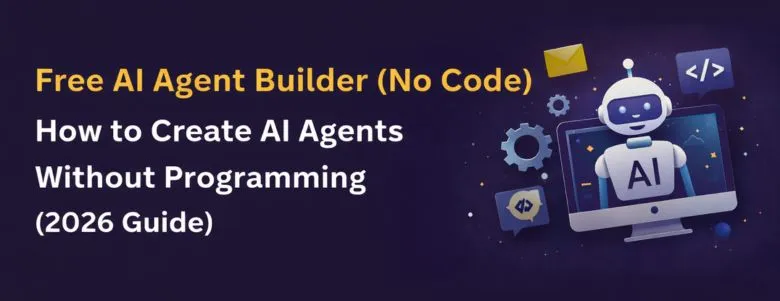Selecting the right programming language is crucial when it comes to web development as it could mean the difference between success and failure on your project. When it comes to programming languages, there are themes upon themes of programming languages, and because of this, developers typically choose programming languages that are powerful enough, flexible enough, and allow them to program interactively while being in a simple, effective programming environment. Python is quickly rising as the best programming language for web development, specifically because of its readability, flexibility, and has an established ecosystem.
In recent years, Python for web development has quickly gained popularity and it is no coincidence because it is easy and efficient.Need help with customized web-development using python. Our team of web-development can help you achieve your goal without getting involved in complex problems and saving your time and efforts.
Table of Contents
- 1. Introduction
- 2. Simple, Clean Syntax
- 3. Strong Web Frameworks
- 4. Rapid Development Speed
- 5. Flexible and Scalable
- 6. Incredible Community Support
- 7. Versatile and Full-Stack
- 8. Strong Security
- 9. Extensive ORM and Database Support
- 10. Cross Platform
- 11. Large Demand and Opportunities
- 12. Hubbub Ecosystem and Libraries
- 13. Modern Development Tools
- 14. Conclusion
- 15. FAQs
2. Simple, Clean Syntax
Python’s philosophy revolves around readability. This is reflected in Python’s syntax, which is clean, simple, and resembles plain English. Readable code is easier to read, maintain, and debug.
The readability of Python is advantageous in the web development space because development is typically iterative and collaborative. Therefore the readability of Python helps to enhance team productivity while at the same time reducing the learning curve for new people joining the team, when onboarding can be faster and much more efficient with Python’s syntax. This makes Python web development especially effective in agile, team-based environments.
3. Strong Web Frameworks
These frameworks are fundamental in Python web development because they allow rapid feature implementation and reduce boilerplate.
Python has ample offerings of mature and stable web frameworks which dramatically shorten development time. The two most popular are:
Django: A high-level web framework that subscribes to the “batteries-included” philosophy, Django provides built-in tools for user authentication, content management, security and much more. This allows developers to deploy features rather than spend their time recreating existing tools.
Flask: A lightweight and modular framework ideal for smaller projects or microservices. Flask provides the flexibility to choose your tools and libraries, making it perfect for developers who want more control over their application’s architecture.
Whether you’re creating an MVP or a robust enterprise solution, these frameworks enable fast-paced web development using Python.
4. Rapid Development Speed
The combination of clean syntax and frameworks ensures that Python for web development supports rapid iteration and deployment cycles.
Python enables rapid prototyping and development. The combination of a clean syntax, a rich standard library, and well-supported frameworks means developers can turn ideas into working products much faster than with many other languages.Startups especially benefit from Python web development because of the reduced time-to-market and development costs.
5. Flexible and Scalable
Despite its simplicity, Python is incredibly powerful. Its flexibility allows developers to build everything from simple web apps to complex enterprise-level platforms. Applications built with Python frameworks like Django are highly scalable and capable of handling increased traffic and data loads as the user base grows.
This versatility proves how web development using Python can adapt to projects of all sizes and industries.
Python’s ability to integrate with other technologies and platforms also makes it suitable for a wide range of use cases beyond traditional websites, including data-heavy applications, APIs, and even real-time services.
6. lncredible Community Support
Python has one of the largest and most active developer communities in the world. This strong support system means developers can easily find tutorials, documentation, third-party packages, and answers to their questions.
The Django and Flask communities are particularly active and maintain detailed documentation, making it easier for developers to learn and build with confidence.
With such a massive ecosystem, it’s no surprise that Python for web development continues to thrive across diverse sectors.
7. Versatile and Full-Stack
Python is a general-purpose language, meaning it’s not just limited to web development. Its wide-ranging capabilities allow developers to use it across the entire tech stack—from front-end integrations (via APIs or WebSockets) to server-side logic and database management.
Because of this versatility, Python web development is a smart choice for teams working across the full stack.
Moreover, Python is frequently used in data analysis, machine learning, AI, automation, and scripting. If you plan to integrate such functionalities into your web applications (e.g., recommendation engines, chatbots, etc.), Python makes it easier to do so within the same environment.
8. Strong Security
Security is a top priority in web development, and Python frameworks offer built-in features to help developers write secure applications. For example:
Django has automatic protections against common security threats like SQL injection, cross-site scripting (XSS), cross-site request forgery (CSRF), and clickjacking.
Flask offers extensible security libraries that can be integrated based on the developer’s needs.
This helps developers focus on features without compromising security, especially in applications handling sensitive data.
Security is baked into the core of most tools in Python web development, making it a go-to for sensitive and enterprise applications.
9. Extensive ORM and Database Support
Most modern web applications interact with databases. Python supports a wide variety of databases including PostgreSQL, MySQL, SQLite, and MongoDB.
Frameworks like Django come with built-in Object-Relational Mapping (ORM) systems that simplify database management. ORMs allow developers to interact with databases using Python code instead of SQL queries. This abstraction not only speeds up development but also reduces the chance of database-related bugs and security issues.
This is another area where web development using Python outshines many alternatives by offering both simplicity and power.
10. Cross Platform
Python is a cross-platform language, meaning it can run on various operating systems like Windows, Linux, and macOS without requiring significant changes to the codebase. This makes it easier to deploy and maintain Python web applications in diverse environments, from cloud servers to on-premise machines.
The ease of deploying across environments makes Python for web development ideal for cloud-native solutions.
Containerization tools like Docker, along with Python’s compatibility with modern deployment platforms (like AWS, Heroku, and Google Cloud), make deployment and scaling more accessible and efficient.
Because of this demand, Python web development continues to offer strong career stability and upward mobility for developers.
11. Large Demand and Opportunities
With its growing popularity, Python continues to be one of the most in-demand programming languages globally. Companies ranging from startups to tech giants like Google, Instagram, and Netflix use Python for various web and backend services.
For developers, this translates to numerous job opportunities and career growth paths. Learning Python not only opens doors in web development but also allows entry into fields like data science, machine learning, automation, and DevOps.
12. Hubbub Ecosystem and Libraries
Python’s package index (PyPI) hosts over 400,000 packages and libraries. This ecosystem covers everything from file handling and cryptography to AI and web scraping.
Need to implement OAuth authentication? There’s a package for that. Want to send automated emails, manage sessions, or process user-uploaded images? Python has you covered.
These libraries save time, reduce the need to write code from scratch, and ensure that your web application is built with tried-and-tested solutions.
13. Modern Development Tools
Python frameworks are compatible with modern development practices like:
RESTful API Development: FastAPI and Django REST framework make building scalable APIs straightforward.
Asynchronous Programming: Frameworks like Tornado and libraries like asyncio allow for non-blocking, high-performance web services.
DevOps and CI/CD Pipelines: Python integrates seamlessly with DevOps tools, making it easy to build, test, and deploy applications.
Whether you’re building a monolithic site or a distributed microservices architecture, Python gives you the tools to do it right.
Conclusion
Python is not just another language for web development—it’s a complete ecosystem that empowers developers to build, scale, and maintain high-quality applications. From its beginner-friendly syntax and rich frameworks to its strong community and versatility across industries, Python continues to be a smart choice for web developers at all levels.
Whether you’re starting a new project, revamping an existing system, or exploring new features like AI and automation, Python offers the speed, support, and scalability needed to deliver results efficiently.
Whether you’re scaling an MVP or building a robust enterprise platform, web development using Python is an optimal choice for 2025.
If you want to discuss more Contact Us and we can get started.
FAQ’s
Q1: Can I build scalable applications with Python web development?
A: Yes, frameworks like Django and FastAPI make it easy to build scalable, high-performance applications suited for both startups and enterprise needs.
Q2: Is Python web development suitable for beginners?
A: Absolutely. Python’s simple syntax and strong community support make it one of the best languages for beginners getting started with web development.
Q3: What industries commonly use web development using Python?
A: Industries like finance, healthcare, education, eCommerce, and tech frequently use Python for web development due to its flexibility and wide ecosystem.
Author
-

Shweta Tiwari brings her expertise in marketing and a passion for clear, engaging communication to the world of digital content. With 5 years of experience, she excels at breaking down complex marketing strategies into easy-to-understand insights. Specializing in digital marketing trends and strategy development, Shweta helps businesses grow and adapt in today’s fast-paced digital landscape





